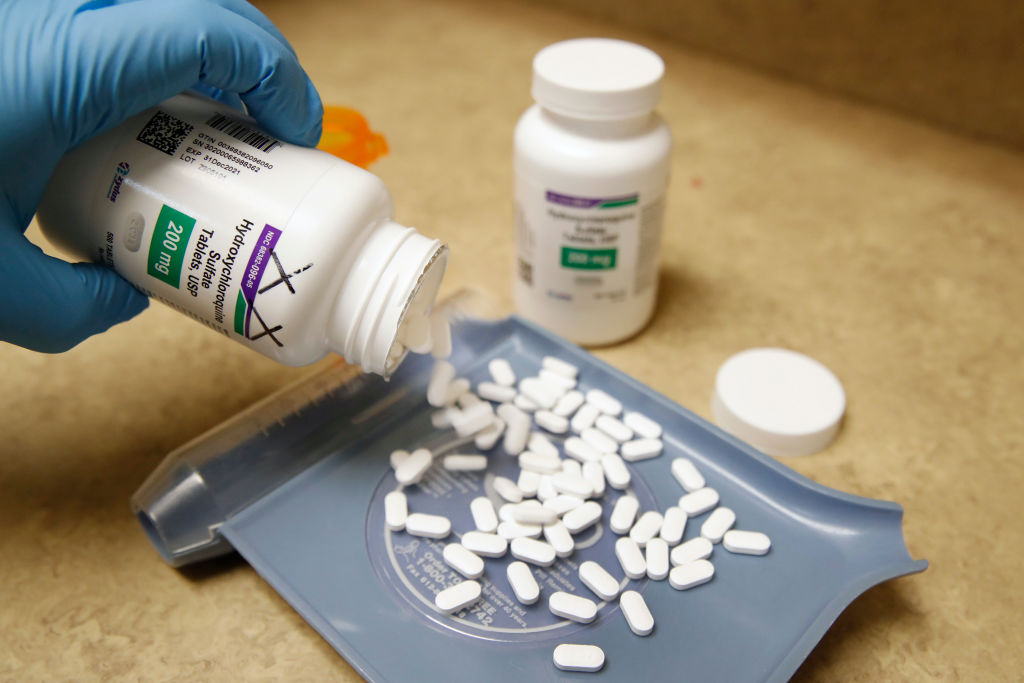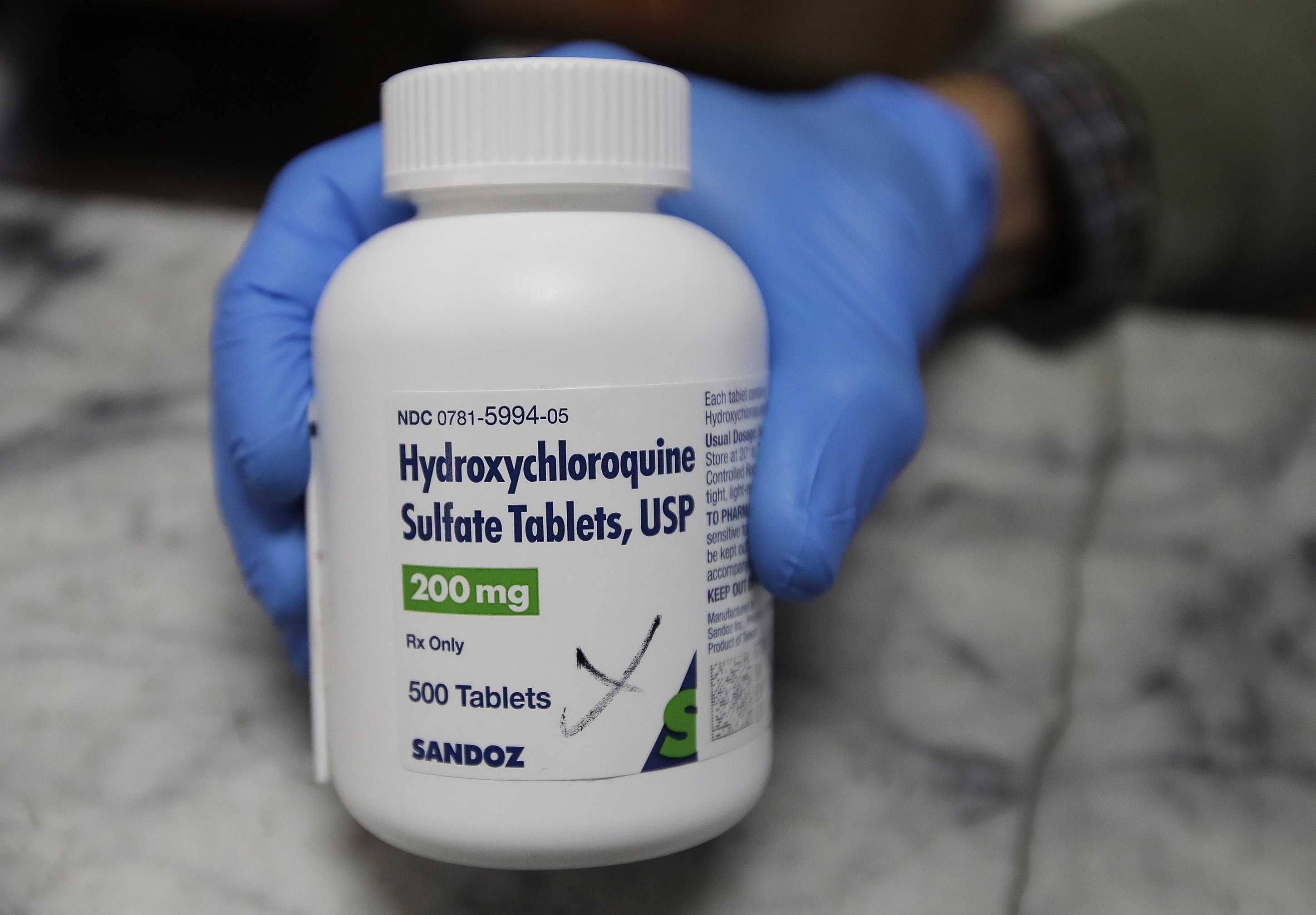Medical journal The Lancet on May 29 issued a correction to a recent study which found that antimalarial drugs Hydroxychloroquine and chloroquine were linked with an increased risk of mortality in hospitals, and an increased frequency of irregular heart rhythms.
The study, titled, “Hydroxychloroquine or chloroquine with or without a macrolide for treatment of COVID-19: a multinational registry analysis,” and published on May 22, included records of 96,032 patients from 671 hospitals in six continents. The patients were hospitalized between Dec. 20, 2019, and April 14, 2020.
Patients receiving the anti-malarials were put in four different groups: chloroquine alone, chloroquine with a macrolide, hydroxychloroquine alone, or hydroxychloroquine with a macrolide. Patients who received none of the treatments formed a control group. Researchers found the 14,888 patients in the treatment group suffered higher mortality when compared to the control group of over 80,000.
“We were unable to confirm a benefit of hydroxychloroquine or chloroquine, when used alone or with a macrolide, on in-hospital outcomes for COVID-19,” the researchers wrote.
The study led the World Health Organization to temporarily suspend the trial of hydroxychloroquine on COVID-19 patients, and to the UK regulatory body, MHRA, requesting the temporary pause of recruitment into all hydroxychloroquine trials in the UK. France also changed its national recommendation of the drug in COVID-19 treatments and halted all trials.

However, more than a hundred scientists and medical professionals raised questions about integrity of data analyzed in the study and subsequently wrote an open letter to its authors and the editor of The Lancet, listing 10 major concerns.
These included the fact that there was “no ethics review,” and “unusually small reported variances in baseline variables, interventions and outcomes,” as well as “no mention of the countries or hospitals that contributed to the data source and no acknowledgments to their contributions.” A request to the authors for information on the contributing centers was denied, the letter said.
Among the scientists other concerns were that the average daily doses of hydroxychloroquine were higher than the FDA-recommended amounts and that data reportedly from Australian patients did not seem to match data from the Australian government.
“Too many cases for just five hospitals, more in hospital deaths than had occurred in the entire country during the study period,” they wrote, noting that Surgisphere, a healthcare data analytics company, has since stated this was an error of classification of one hospital from Asia. “This indicates the need for further error checking throughout the data base,” they wrote.
The scientists also said the authors “have not adhered to standard practices in the machine learning and statistics community. They have not released their code or data.”
“Data from Africa indicate that nearly 25% of all COVID-19 cases and 40% of all deaths in the continent occurred in Surgisphere-associated hospitals which had sophisticated electronic patient data recording, and patient monitoring able to detect and record ‘nonsustained [at least 6 secs] or sustained ventricular tachycardia or ventricular fibrillation.’ Both the numbers of cases and deaths, and the detailed data collection, seem unlikely.”

The Lancet’s study was informed by data from Surgisphere of which Sapan Desai, the president and Chief Executive Officer, is listed as one of the four authors.
“We discovered that a hospital that joined the Surgisphere registry on April 1, 2020 (in between our quarterly audit periods) self-designated as belonging to the Australasia continental designation. In reviewing the data from each of the hospitals in the registry, we noted that this hospital should have more appropriately been assigned to the Asian continental designation,” Surgisphere said in a statement.
“This hospital was properly reclassified in our database. The findings of the paper are unaffected by this update,” the company said.
In the correction issued on Friday, The Lancet also mentioned the same hospital.
“The appendix has also been corrected. An incorrect appendix table S3 was included, originally derived from a propensity score matched and weighted table developed during a preliminary analysis. The unadjusted raw summary data are now included.”
The Lancet added that there “have been no changes to the findings of the paper,” and that the corrections have been made to the online version and will also be made to the printed version.
In response to the correction issued on May 29, James Watson, a Thailand-based statistician with the University of Oxford’s Centre for Tropical Medicine and Global Health, who led the drafting of the letter, told BuzzFeed News that the authors of the study had failed to address the other nine points referred to in the letter.
Health - Latest - Google News
June 01, 2020 at 02:22AM
https://ift.tt/2AvAuhV
Hydroxychloroquine Study Corrected After More Than 100 Scientists Question Findings - The Epoch Times
Health - Latest - Google News
https://ift.tt/2zrj9Ud
Bagikan Berita Ini














0 Response to "Hydroxychloroquine Study Corrected After More Than 100 Scientists Question Findings - The Epoch Times"
Post a Comment